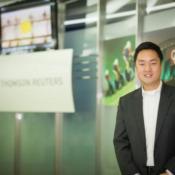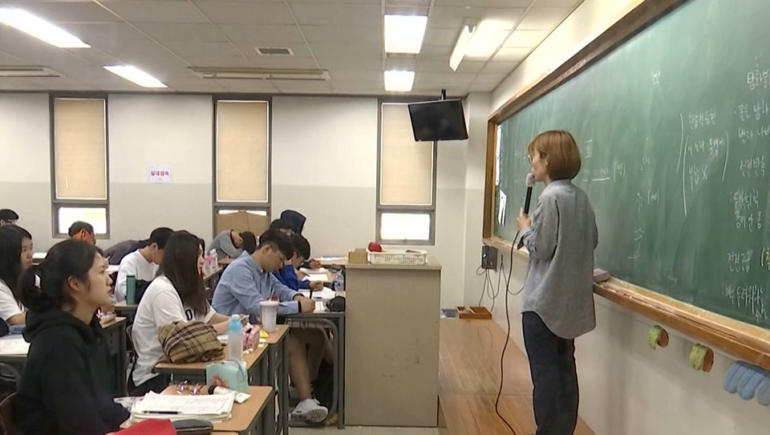Education is a serious business in South Korea. Parents are investing heavily on their children’s learning. That’s billions of dollars a year on after-school classes and tutoring. It’s created a thriving private education industry – with teachers finding fame and fortune.
CGTN’s Shane Hahm reports.
Private instructors like Kim Dae-kyun have near-celebrity status. Kim commands a six-figure salary and has amassed more than $10 million in personal wealth.
But you’ll hardly find him in the classroom these days because much of his teaching happens online and through social media.
“In the past, I succeeded by standing out with my cramming skills. Now, I’m doing internet broadcasts, but even that has become commonplace. It’s become standardized. These days, video is the most important medium,” said Kim.
Private education is a $20 billion industry in South Korea. A vast majority of students take classes late into the night on top of their regular school curriculum.
The culmination of all that hard work is the annual college entrance exam.
“Arriving at school at 7AM and studying until 9 at night was my daily routine. It’s been extremely exhausting. But I was able to endure it and study hard by thinking about how rewarding it can be,” said high school senior, Choi You-Na.
To give you an idea of just how important these exams are, the local stock market begins trading an hour later usual, and no-fly zones are in effect near testing sites during listening portions of the test. But as one would expect in this ultra-competitive society, the learning doesn’t end in university.
Upon graduation, jobseekers rely on cram schools to boost their resumes. And prospective employees work to improve standardized test scores.
“Employment conditions are currently unstable and social consensus favors prestigious school graduates. So, the most urgent issues that need to be tackled are stabilizing the job market and alleviating the university hierarchy to reign in soaring private education costs,” said Educational Activist Gu Bon-Chang.
Kim has had to adapt to changing technologies and consumer demands to stay ahead of the game in this competitive environment.
“As a teacher, of course you must have basic skills. That’s why I still sit for exams and display my perfect test scores. So, I still work hard. But what do students want most these days if you don’t include enjoyment in your lessons, it’s difficult to survive,” added Kim.
Hundreds of students log in to interact on Kim’s weekly lecture. To many, his status as a high-profile instructor could seem like fun and games.
But behind the scenes, his passion to innovate and evolve is what puts him in a class of his own.
 CGTN America
CGTN America

